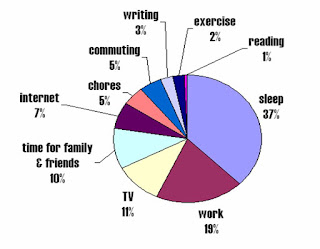Lessons from a somewhat larger island
As I mentioned in my last blog, I write because it helps me to process my thoughts - so here we go!
As I sat down for dinner with the village school teachers last weekend, I realised that for the first time, I remembered all their names without having to be reminded or re-introduced. I even noticed who was *missing*, which is always a good sign that you really remember people.
These things were no longer new to me. And it was great. For the first time, I could genuinely say, I know my friends, and I cared about what they care about. This is harder than it sounds. Many of us, including myself, work with employers who have Corporate Social Responsibility programmes, and organise charity outreach days. Hand on heart, how many of us remember the names of the people we meet on those outreach days?
But there's space for some of us to do the small things too. The stuff that can't be replicated at scale. Spending time to know names and individual hopes and dreams and struggles.
It shouldn't come as a surprise I suppose - no one turns up at a new school or office and figures out all their friends within the first 6 days, so why would it be different with our outreach here?
So Takeaway No. 1 for this round - if we really want to love, and to care for individuals, we've got to keep coming back, at a good frequency, and for the long long looooong term. And between visits, now that technology permits it, keep in regular contact with calls and messages. It really makes a difference.
More than 200 years ago, some British fellows turned up in the South China Sea in an East India merchantman vessel, and chanced upon the island of Singapura.
These visitors had more advanced education, and deeper pockets than the locals. For the next 150 years or so, they hung around and did some great things. They improved education. They introduced the rule of law. They brought technological advances.
And we all know what eventually happened. We got tired of this, even resentful, and finally we said, sometimes politely, sometimes less politely, "I think we got this. You can go home now".
And now I turn up in some other place which hasn't quite figured it all out yet.
Hi there! I've got so much to teach you. I've got the money and the resources. Listen - here's what you gotta do. You, go do this. You, go do that.
Waaaaaaiiiitttt a minute. This feels familiar. So let's take one big step back.
Now, I'm pretty tall, and the villagers, in general, are shorter. Those of you who have accompanied me on my regular visits to my friends in the rental blocks and in Batam have probably seen that I am uncomfortable talking down to people - I much prefer to be at eye level.
So, for example, when I visit a flat and the resident is sitting on the sofa, I prefer to kneel or sit on the floor in front of that person, rather than stand over them. I do the same when I'm visiting my friends in Batam.
But the interpreter takes offence.
"The floor is not so dirty you know. You can just sit down there".
She'd immediately assumed that I was not deigning to sit on the floor. That it was below me to do so. That Singaporeans looked down on them.
But it struck me that, there must be a good reason why the interpreter reacted so violently. It must have been that someone from Singapore, maybe many Singaporeans, had already behaved, perhaps inadvertently, with an irritating degree of superiority.
Hey, I've got the money and the education and I'm here to tell you all what's what.
The interpreter's reaction was understandable.
And that's something we have to be conscious of when we're "doing good". We often didn't like the white colonialists, even the fantastically well-intentioned ones, of which there were very many I'm sure. So whatever our own laudably good intentions now, we better watch ourselves!
Knowledge, experience, money and connections... they all belong to God. All we are, are the administrative assistants to disburse these things. We're clerks and servants.
We don't get to tell the boss - nah, I'm gonna do this other thing with your money and resources.
And we don't get to tell the customer - hey you, listen to me. I know better, so you better do this.
In sports parlance, when we go over there to help the locals and their leaders: Who are the players on the court? They are. What are we? Just the half-time show. We're the guys handing out drinks, keropok and kacang puteh, maybe organising some entertainment on the court. But the real everyday heroes? It's them. Not us.
If you read this, and want to get involved with our work in Singapore, or overseas; if you want to experience it for yourself, and get started on this journey of purpose, drop me a line, let's journey together!
Jesus called them together and said, "You know that the rulers of the Gentiles lord it over them, and their high officials exercise authority over them. Not so with you. Instead, whoever wants to become great among you must be your servant, and whoever wants to be first must be your slave - just as the Son of Man did not come to be served, but to serve, and to give his life as a ransom for many. (Matthew 20:25-28)
Do not withhold good from those to whom it is due, when it is in your power to act. Do not say to your neighbour, "Come back tomorrow, and I'll give it to you: - when you already have it with you" (Proverbs 3:27)

















Comments